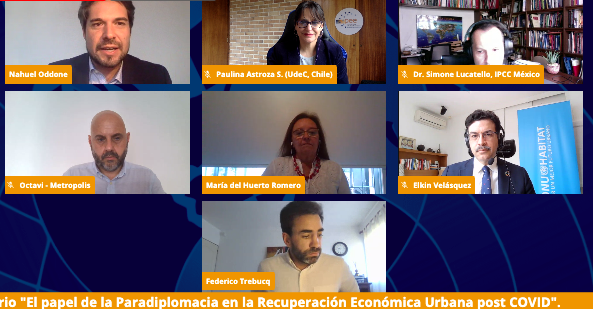
The role of paradiplomacy in urban economic recovery post-Covid-19
The United Nations promotes the idea of “recovering better” by including measures to plan and build resilient cities, advocating for a multi-hazard, multi-sectoral and multi-stakeholder approach that supports decarbonisation and the circular economy, while focusing on overcoming inequality to help the most vulnerable groups.
What are the key factors in urban resilience? What are the most appropriate solutions to build more resilient cities and local governments, ones that can withstand sudden shocks such as Covid-19, as well as any future crises that might befall urban areas?. These were the questions at the heart of the webinar organised on 24 June by Universidad de Concepción (Chile) under the framework of the project “Over the Atlantic. EU and Latin America Relations: Between Diplomacy and Paradiplomacy (OTA)”, funded by the European Commission.
The webinar was attended by Octavi de la Varga, Metropolis Secretary General; Simone Lucatello, Professor of the Mora Institute; María del Huerto Romero, Professor at the National University of Rosario (UNR); and Federico Trebucq, member of the Executive Committee of REPIT.
The panellists highlighted how paradiplomacy can contribute to capacity-building, multi-level coordination and channelling the contributions of citizens and civil society. The discussion went on to highlight the opportunities that technological advances could offer in terms of new models of development and reorganising decision-making processes. The webinar also covered the importance of contributing towards scaling up urban resilience.
The importance of governance, strategic urban planning and citizen involvement in ensuring resilient urban environments was also noted.

Finally, Octavi de la Varga commented that, in addition to adding further depth to the 2030 Agenda, the pandemic had put three issues back on the table on the local and global agenda: public services, the design and use of public space, and the digital divide.

